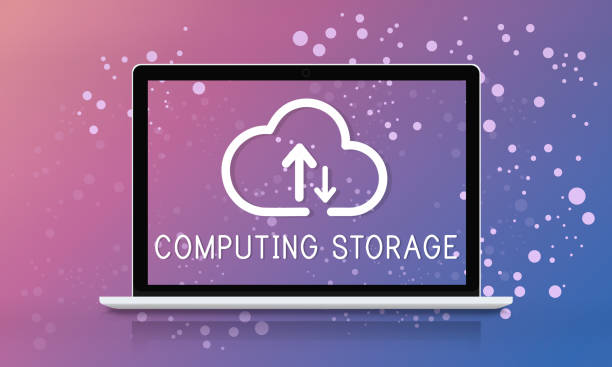Introduction: Why Cloud Software Is Critical for Business Growth
In the digital-first world of 2025, cloud software for businesses is no longer optional—it’s essential. From startups to global enterprises, cloud-based tools help organizations streamline operations, enable remote work, reduce IT costs, and remain competitive.
Cloud software refers to applications hosted on remote servers and accessed via the internet, eliminating the need for expensive infrastructure. This article explores the top cloud software platforms, key benefits, industry trends, and how to choose the right solutions for your business.

What Is Cloud Software for Businesses?
Cloud business software is any application delivered over the internet that helps companies manage operations such as accounting, collaboration, customer relationship management (CRM), and data storage.
Common Types of Business Cloud Software
- SaaS (Software as a Service) – Cloud-based apps like email, CRMs, and accounting tools.
- PaaS (Platform as a Service) – For developers building custom apps.
- IaaS (Infrastructure as a Service) – Virtualized hardware like servers and networking.
These platforms allow businesses to scale operations, minimize upfront costs, and access data securely from anywhere.
Top Cloud Software Tools for Businesses in 2025
1. Microsoft 365 – Best for Productivity and Collaboration
- Use Case: Document creation, email, meetings
- Features: Teams, Word, Excel, SharePoint
- Why It’s Great: Real-time collaboration, tight integration across devices
2. Salesforce – Best CRM Software
- Use Case: Sales, customer service, marketing automation
- Features: Lead management, reporting, AI insights
- Why It’s Great: Scalable CRM for startups to enterprises
3. QuickBooks Online – Best for Cloud Accounting
- Use Case: Bookkeeping, payroll, invoicing
- Features: Tax automation, bank reconciliation, reporting
- Why It’s Great: Designed for SMBs with easy-to-use interface
4. Google Workspace – Best for Team Collaboration
- Use Case: Cloud storage, meetings, shared docs
- Features: Gmail, Google Docs, Drive, Meet
- Why It’s Great: Cost-effective suite ideal for remote teams
5. Zoom – Best Cloud Communication Tool
- Use Case: Video conferencing, webinars, messaging
- Features: HD video/audio, integrations, cloud recording
- Why It’s Great: Reliable platform for virtual collaboration
6. Monday.com – Best for Project Management
- Use Case: Workflow automation, team tracking
- Features: Task boards, dashboards, integrations
- Why It’s Great: Visual, intuitive, ideal for agile teams
Benefits of Using Cloud Software for Businesses
| Benefit | Why It Matters |
|---|---|
| Cost Efficiency | No upfront hardware investment or maintenance costs |
| Scalability | Add users, storage, and features as your business grows |
| Remote Accessibility | Work from anywhere with real-time data syncing |
| Automatic Updates | Software is always up-to-date with latest features and security patches |
| Data Security | Built-in encryption, backups, and disaster recovery |
| Integration | Easily connects with other apps and systems through APIs |
Cloud Software Use Case Example: A Growing E-commerce Business
Company: Nova Clothing Co.
Challenge: Managing orders, customer data, and inventory across multiple platforms
Solution:
- Adopted Shopify Plus for cloud-based e-commerce
- Integrated Salesforce for CRM
- Used QuickBooks Online for accounting
Results: - 50% faster order processing
- 3x improvement in customer service response times
- Unified dashboard for finance, sales, and marketing
How to Choose the Right Cloud Software for Your Business
1. Identify Your Needs
- Are you looking to improve communication, sales, or operations?
- What’s your budget and expected ROI?
2. Prioritize Security and Compliance
- Ensure the software offers end-to-end encryption, 2FA, and complies with GDPR, HIPAA, or other relevant regulations.
3. Check Integration Capabilities
- Will it integrate with your current CRM, ERP, email, or accounting software?
4. Evaluate Scalability
- Can the software grow with your business over time?
5. Look for Free Trials and Demos
- Many top tools like Asana, Dropbox Business, and Slack offer free trials.
2025 Trends in Cloud Software for Businesses
- AI-Powered Automation – Automating repetitive tasks and generating smart insights.
- Industry-Specific SaaS – Tailored software for healthcare, legal, and education sectors.
- Multi-Cloud Strategies – Using multiple cloud providers for redundancy and flexibility.
- Green Cloud Solutions – Sustainable and carbon-neutral cloud services.
- Increased Zero-Trust Security Models – Enhanced data protection through identity-first security.
SEO Checklist & Summary
Primary Keywords: cloud software for businesses, best business cloud software, SaaS for business
LSI Keywords: online business software, cloud-based CRM, cloud productivity tools, business SaaS solutions
Internal Linking Suggestions:
- “Top SaaS Tools for Startups in 2025”
- “How to Build a Remote Team with Cloud Tools”
External Linking Suggestions: - Microsoft 365
- Salesforce
- QuickBooks Online
- Monday.com
Conclusion
Cloud software is reshaping how businesses operate in 2025. Whether you’re a freelancer, SMB, or global enterprise, using cloud tools can help you work smarter, scale faster, and stay secure. The best cloud software for your business depends on your unique goals, but the options above offer a powerful starting point for growth and innovation.
